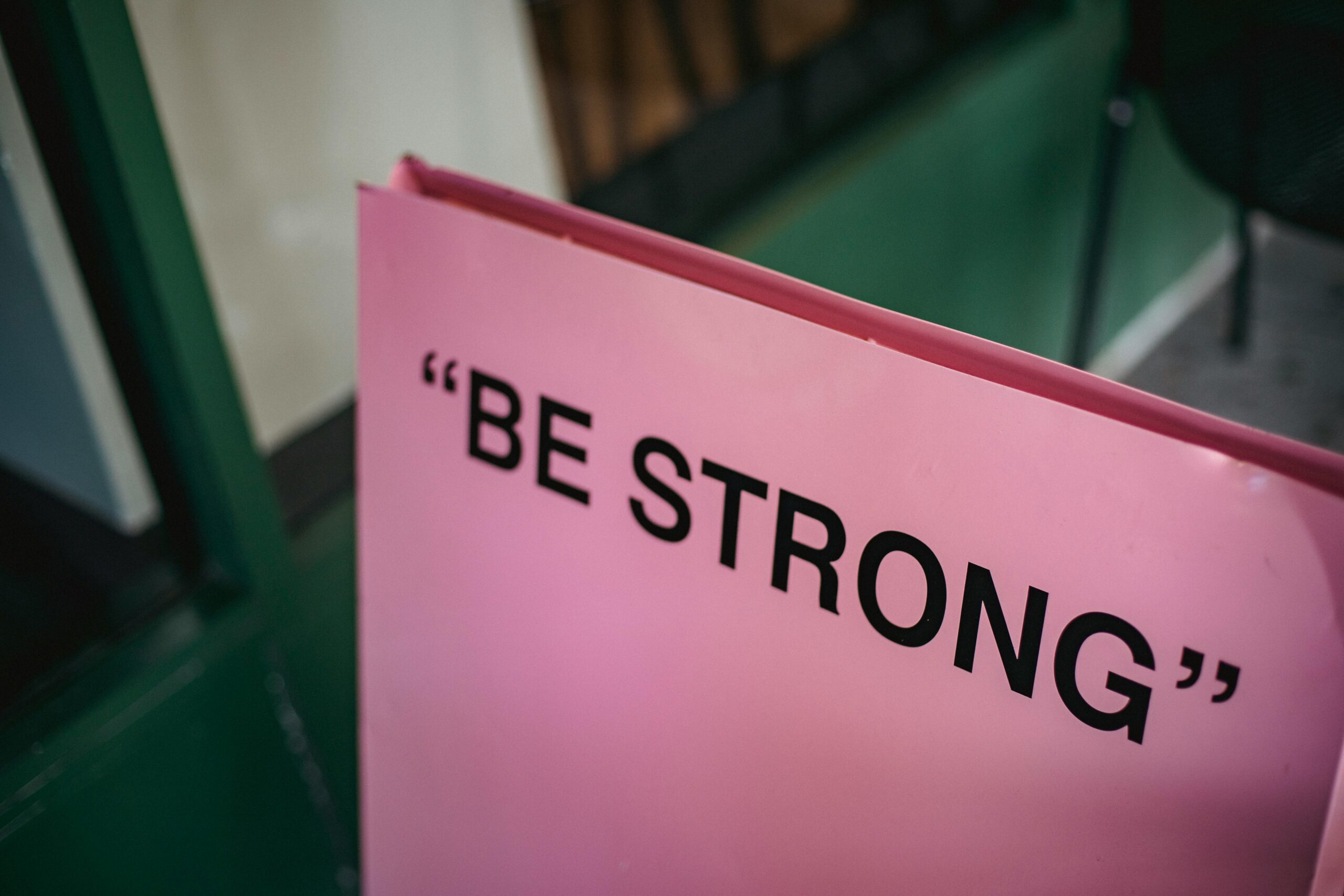Why “Being Strong” might be keeping you stuck. If you’ve ever been told to “be strong,” you’re not on your own.
It’s one of those well-meaning phrases we hear when things are tough, when life feels overwhelming or our emotions start to spill over. But somewhere along the way, “being strong” has come to mean not feeling at all.
We’ve learned to hide, suppress, or power through our emotions to keep life moving. And while that might work for a while, eventually it takes its toll.
Because actually, ignoring your feelings doesn’t make you strong. It keeps you stuck.
Your Feelings Are Not the Problem – They’re Information
We all experience an incredible range of emotions. They can shift from one moment to the next, from calm to frustrated, from content to anxious, from excited to overwhelmed.
It’s easy to think that these waves of emotion are random, but they’re not. Your feelings are a form of information, your body and mind’s way of communicating what’s happening inside you. For example:
Anger might be signalling that a boundary has been crossed.
Sadness could be telling you that you need rest or connection.
Anxiety might be highlighting uncertainty or imbalance.
When we learn to listen to these signals instead of silencing them, we gain insight into what we need and how to take meaningful action.
Start With Slowing Down
It sounds simple, but in reality, most of us are too busy to notice how we feel. Between work, family, and endless responsibilities, we often rush through the day on autopilot and have a billion tabs open all at once! Just think about what happens when you have many tabs open on your phone, how it slows it down.
Start by creating small moments to check in with yourself, even just for a minute or two.
Ask yourself:
- What am I feeling right now?
- Where do I feel it in my body?
- What might this feeling be trying to tell me?
Notice if your chest feels tight, your stomach is in knots, or your mind is racing. These physical sensations are messages. By slowing down and paying attention, you begin to translate what your emotions are communicating.
Feelings are not the enemy, they are your ally, a useful guide to enable you to take action. But only if you allow them. Remember, being strong might be keeping you stuck!
The Myth of “Being Strong”
Being strong might be keeping you stuck! Many of us were taught that showing emotion is a sign of weakness, that to “be strong” means holding it all together and keeping calm no matter what.
But true strength isn’t about pretending everything’s fine. It’s about having the courage to face what’s really going on inside you.
Unprocessed emotions don’t disappear. They build up.
Think of emotions like water in a dam: if you never release any pressure, eventually the dam cracks. That’s when feelings burst out in unexpected ways, snapping at someone you love, crying over something small, or feeling physically exhausted for no clear reason.
Letting yourself feel, safely and intentionally, prevents that overflow. It’s not weakness.
It’s wise emotional maintenance.
Feelings as Your Internal GPS
Your emotions are like a built-in guidance system. They point you toward what matters, what’s not working, and what needs attention.
For example, imagine you’re juggling work deadlines, supporting your children, and trying to make time for friends. When another request lands, a new client project, a social event, a favour, you suddenly feel irritated or overwhelmed.
That irritation is information. It might be telling you that your plate is too full, that you need rest, or that it’s time to set a boundary.
When you pause to notice that message, you can make a conscious choice instead of running on autopilot. You might decide to say no, delegate a task, or carve out time for yourself, actions that support your wellbeing rather than drain it.
The “Quiet Life” That Isn’t So Quiet
I often hear clients say they keep their feelings to themselves because it’s easier, that it keeps the peace or avoids conflict.
But here’s what I gently ask in return: Is it really quiet inside?
Because when we suppress emotions, the noise doesn’t go away. It becomes internal, a low hum of tension, frustration, or worry that follows us around. That inner noise can affect our sleep, concentration, relationships, and even our physical health.
Facing your feelings might feel uncomfortable at first, but in the long run, it brings real peace, the kind that comes from alignment, not avoidance.
Learning to Let Go
Feeling your feelings isn’t about getting stuck in them. It’s about recognising them, understanding the message they bring, and then choosing how to respond.
You can start small:
- Take a few “feelings check-ins” throughout your day – morning, midday, and evening work well.
- Try naming your emotion – even if all you can say is “tense,” “anxious,” or “tired.”
- Write down what you notice. Over time, patterns will start to appear.
You don’t need to get it perfect, this is a practice, not a test. And if it feels difficult to identify or express your emotions, that’s completely normal. With practice (and sometimes with support), it gets easier. I would highly recommend the “How We Feel” app, it’s free and it’s brilliant. I recommend it to all of my clients almost as soon as we meet.
You Don’t Have to Do It Alone
Processing emotions can be challenging, especially if you’ve spent years learning to push them away. But it’s never too late to start.
Talking to a friend that you trust, family member, or therapist can make all the difference. Therapy provides a safe, supportive space to explore your emotions, understand what they’re trying to tell you, and learn healthier ways to respond.
Asking for help isn’t a sign of weakness. It’s one of the strongest, bravest things you can do.
Final Thought
If you think that Being Strong Might Be Keeping You Stuck, remember, your emotions aren’t something to fight against, they’re part of what makes you human.
When you start seeing feelings as information rather than problems, everything changes. You gain clarity, resilience, and a deeper connection with yourself.
So take a breath. Slow down. Listen.
Your feelings are trying to tell you something.
And when you start listening, life starts to feel a lot lighter.
About the Author
This post was written byJulie Lee, therapist and author of The Things We Talk About in Therapy. Julie Lee works with individuals who want to understand themselves better, improve their emotional wellbeing, and live with more authenticity and ease. Her approach focuses on helping clients develop self-awareness, emotional resilience, and healthier ways to relate to themselves and others. She specialises in working with perinatal mental health and trauma.
If you’d like support in learning how to understand and work with your emotions, you can book a session or get in touch for a free 15 minute enquiry call.
You don’t have to do it alone, support is here when you’re ready.






